From September 20th – 24th 2021, ANDEMIA, the INRB, and Saint Luc Hospital collaborated to provide a 5-day training in the WHO core components of a facility infection, prevention and control (IPC) program. The training was led by an external IPC expert, Dr. Charles Basilubo, with support from Dr. Francois Kangela, an internal IPC expert. The 23 participants of the training were healthcare workers and other IPC stakeholders from Saint Luc Hospital, the INRB, and the Kisantu Health Zone.
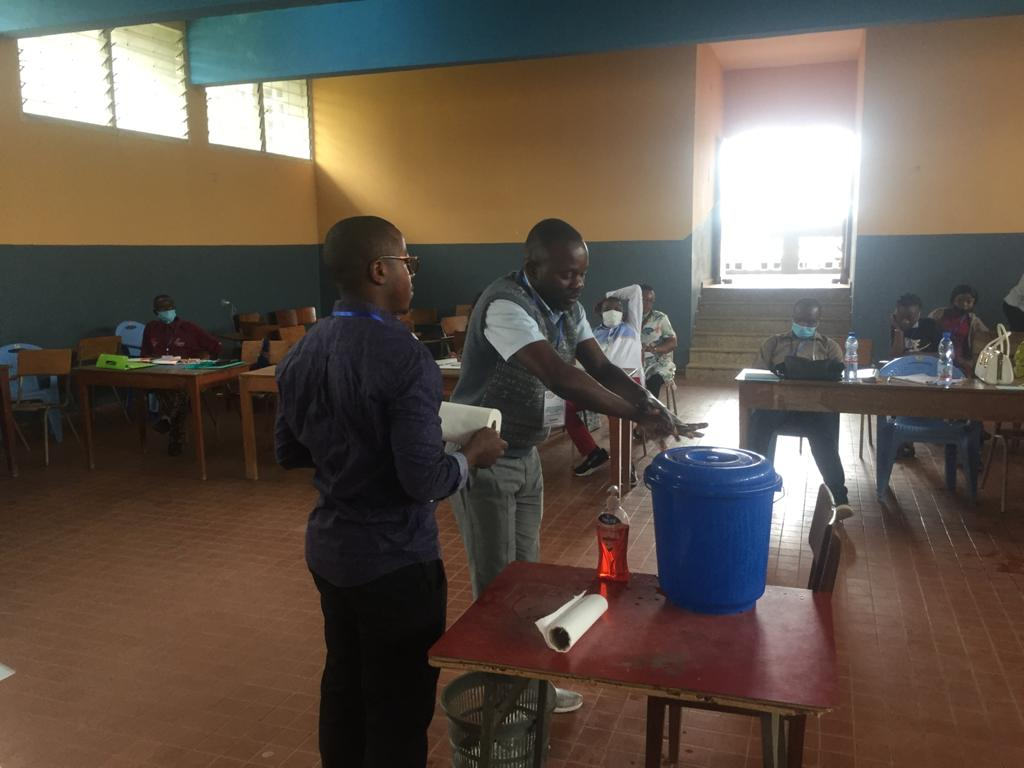
From March 7–28 and June 6–19 of 2021, Grit Schubert and Rebekah Wood from the RKI traveled to the Central University Hospital (CHU) of Bouaké for training, diagnostics and team building. Dr. Schubert conducted a repeated training in MinION nanopore sequencing of SARS-CoV-2 as well as in bioinformatical analyses with the ARTIC Pipeline. Both trainings were performed at CHU Bouaké together with the local network members. Results of sequencing and analysis were published in a preprint (https://www.medrxiv.org/content/10.1101/2021.05.06.21256282v1) after detection of a variant of concern. Dr. Schubert and Mrs. Wood also supported the local team in SARS-CoV-2 serological analyses, molecular diagnostics for the surveillance network and student training. There was also time to visit and consult with the medical staff at the Brobo health center. The new laboratory building was inspected on each trip and there is a lot of excitement that the facility is getting closer to an operational point. The information exchange has been very fruitful and continues on with members of the CHU diagnostic team coming to Berlin for further training this August.
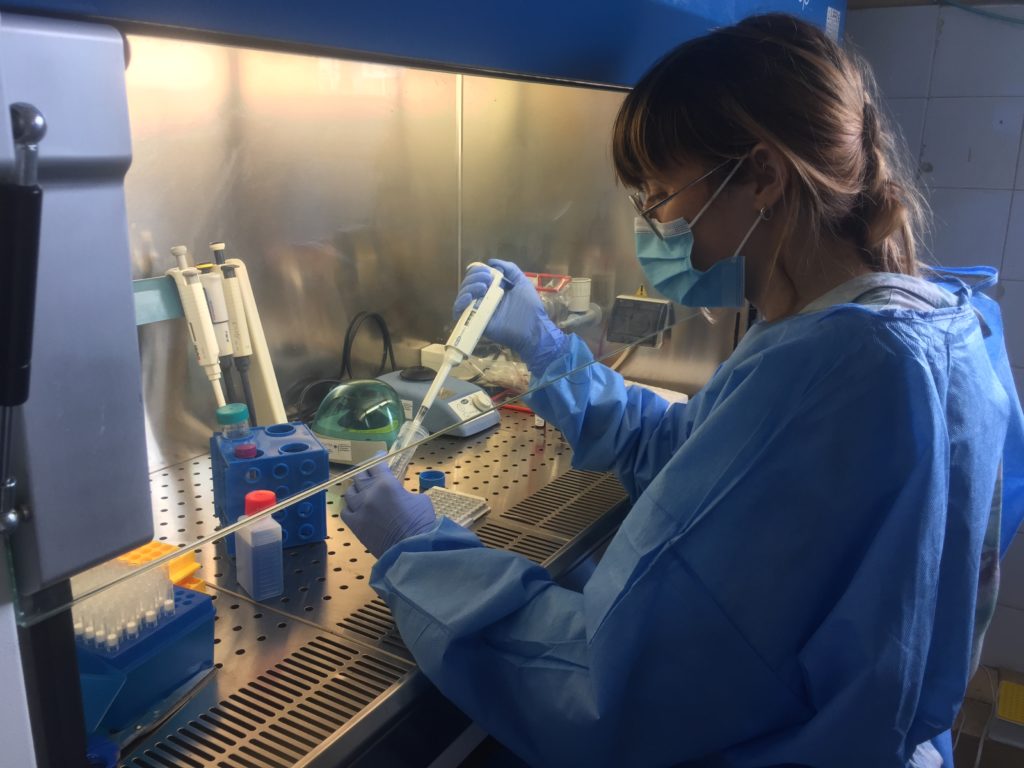
In October and November 2020, a laboratory training on molecular SARS-CoV-2 diagnostics using PCR and Elisa, as well as mobile sequencing using MinION (Oxford Nanopore Technology) took place at Centre Muraz in Bobo Dioulasso in Burkina Faso, conducted by Essia Belarbi (P3/RKI) und Jasmin Schlotterbeck (FG37/RKI).
During the almost 5-week stay, they conducted a workshop on the basics of genome sequencing. Together with the Burkinabe team led by Dr. Arsene Zongo they tested sample material routinely collected from probands via ANDEMIA since the beginning of the 2019 pandemic and sequenced a total of 85 SARS CoV-2 positive samples, predominantly from the national coronavirus surveillance. During the stay, the sequence data generated was published as the first Burkinabe SARS CoV-2 sequences via “GISAID” which is an online database that enables the rapid publication and international exchange of genome data in outbreak situations.
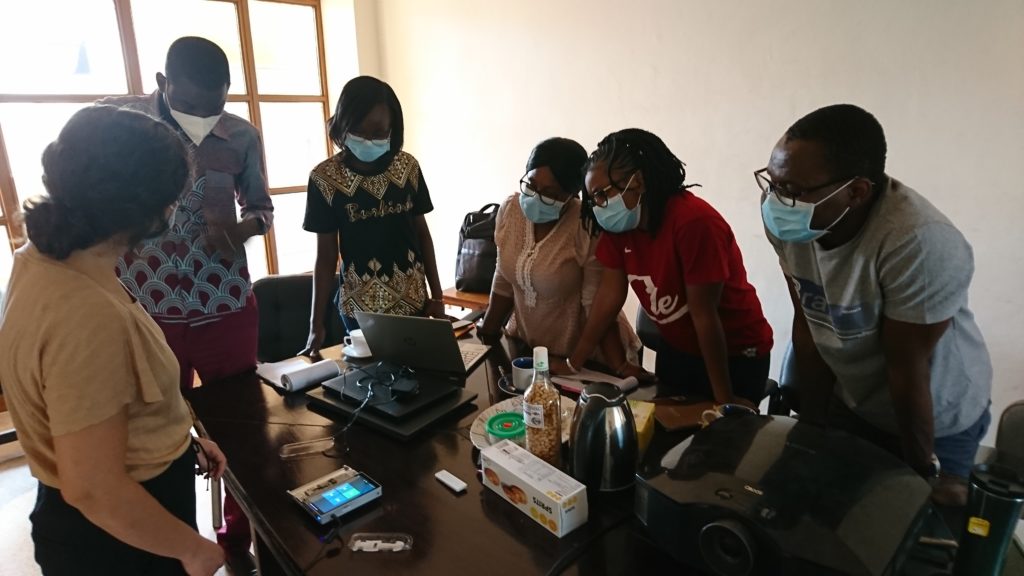
Due to the pandemic, this year’s meeting of the ANDEMIA network could only take place online and in a shortened form. On 24 November 2020, the project partners from the four African partner countries met online to digitally exchange information about project progress despite the corona impairments and plans for the future of the project. The respective syndromes were discussed like in previous years in plenary as well as subgroup discussions.
Besides the ANDEMIA activities project members also discussed the national SARS-CoV 2 activities they are involved in.
Even despite the shortness of this year’s meeting we had very fruitful discussions and hope to meet again in person in 2021.
Stay healthy!
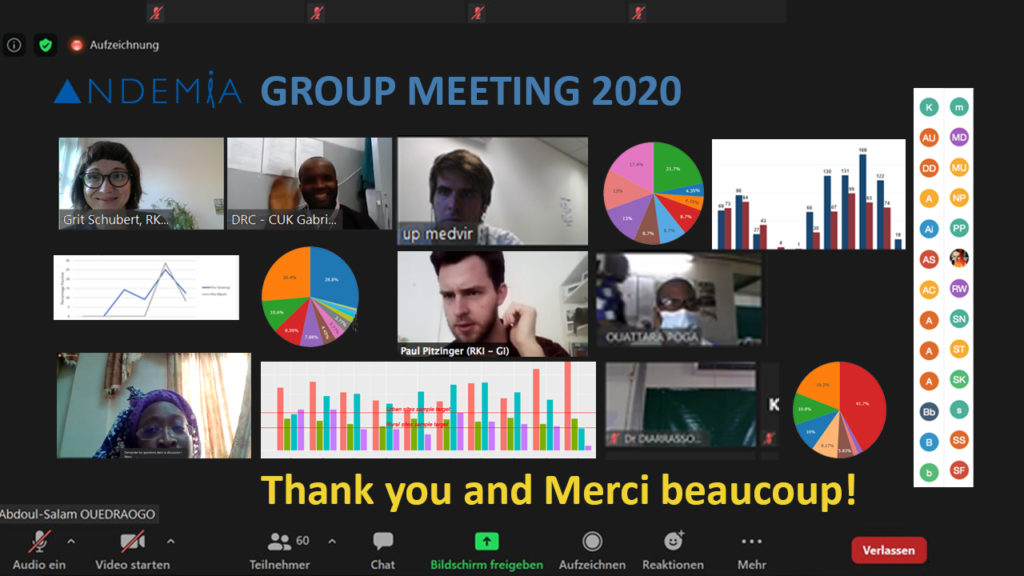
From 22.09. – 11.10. 2020 Andreas Sachse (P3/RKI) held a 3-week laboratory training course on molecular SARS-CoV-2 diagnostics, especially on mobile sequencing using MinION (Oxford Nanopore Technology) at the University Hospital CHU Bouaké in the Ivory Coast in order to provide specific support for Ivorian colleagues in the current pandemic.
During the stay Mr. Sachse sequenced together with the Ivorian scientist Etile Anoh a total of 208 samples, mainly from the national Coronavirus Surveillance. During Mr. Sachse’s stay, 64 sequences have been generated so far and these are the first Ivorian SARS-CoV-2 sequence data made available to the public via GISAID. GISAID is an online platform that allows for the rapid international exchange of genomic data, including SARS-CoV-2. At the same time, 7 SARS-CoV-2 full genomes of patients of the BMBF-funded ANDEMIA study from the Democratic Republic of Congo (report September 2020) could be published on the same platform.

In order to support the Congolese colleagues in the current pandemic, a laboratory training in molecular SARS-CoV-2 diagnostics and serology took place at the INRB in Kinshasa.
During a 3-week stay (05.-28.08.2020), Caroline Röthemeier from RKI, Germany and the Congolese ANDEMIA team examined sample material that had been routinely collected from ANDEMIA participants since December 2019. RNA was extracted from over 600 nasal/pharyngeal swabs from patients with acute respiratory symptoms and tested for SARS-CoV-2. In addition, 480 serum samples were serologically tested for the presence of long-term antibodies (IgG) against SARS-CoV-2. Seropositive samples will now be tested by neutralization test at the RKI.
The local staff trained by Ms. Röthemeier is now also responsible for the analysis within a SARS-CoV-2 antibody study among health care workers and their families in Kinshasa. This study is carried out in cooperation between the RKI, the INRB/Kinshasa, the ITM/Antwerp and the IRD/Montpellier.
This training was financially and organizationally supported by the GHPP project ARGOS and ZIG3/RKI respectively.
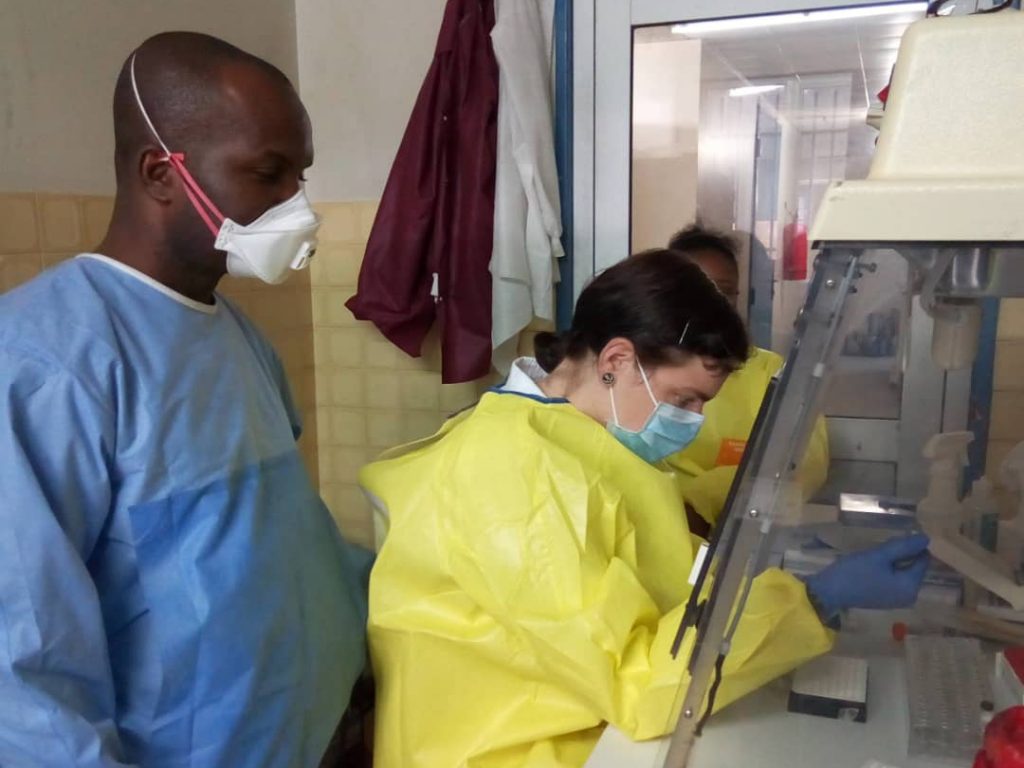
SARS-CoV-2 is widely spreading throughout the African continent, and with a focus on also acute respiratory disease, ANDEMIA is highly engaged in supporting our African partner countries in responding to the pandemic.
We therefore included SARS-CoV-2 PCR in our routine testing panel for all ANDEMIA patients (co-funded by BMBF through the sub-project ANCOS), implemented mobile sequencing techniques in order to investigate infection chains, and started a pilot serological survey to draw inference on the level of exposure of local populations to the virus.
Adding COVID-19 to the research program of ANDEMIA will aid to close important knowledge gaps in the understanding of COVID-19 disease dynamics and epidemiology, provides a platform for long-term monitoring of COVID-19 pneumonia, and most importantly practically assists in national COVID-19 control efforts, which is of utmost importance.
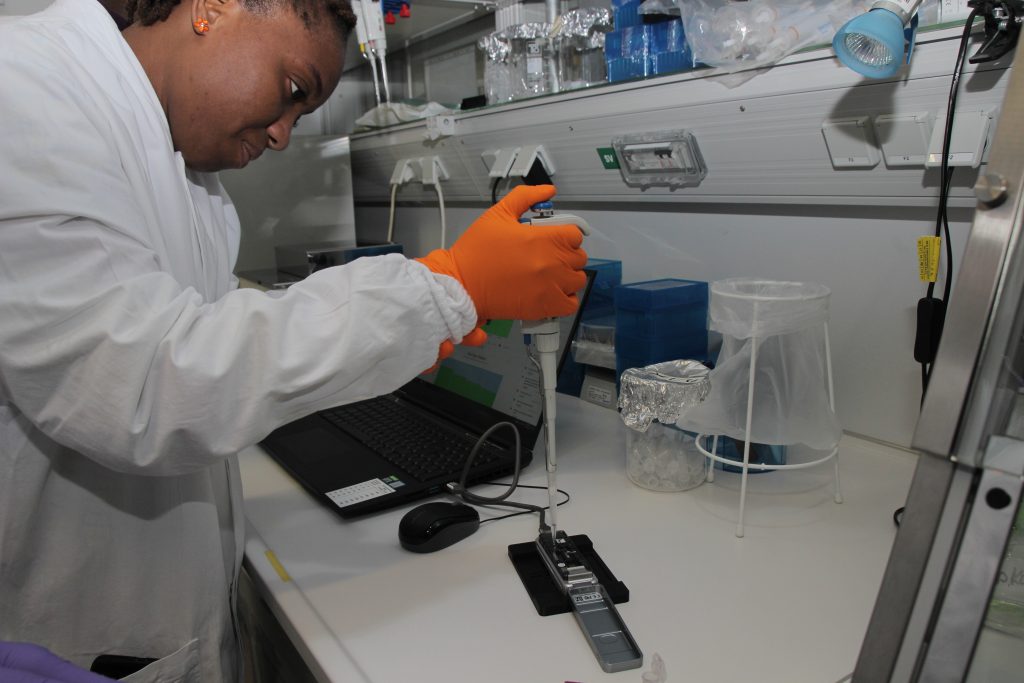
From the 24.02. to 08.03.2020 three members of the German ANDEMIA team from RKI spent two weeks at the partner site “Centre Muraz” and “Centre Hospitalier Universitaire Souro Sanou” at Bobo-Dioulasso in Burkina Faso.
As the previous stay in Côte d’Ivoire the main focus of the trip was retraining of enrolment staff and quality assurance in laboratory practices. This included pre-analytics such as proper blood sampling procedures and avoiding contamination in blood culture (training video), as well as individual training and reassessment of laboratory practices in both molecular and bacteriological testing. On the molecular testing side, the validation of results was re-evaluated and focused on. On the bacteriological side, the team from RKI emphasized the use of API galleries for bacteria identification with an introduction to the APIweb system. Lastly, several meetings for the start of enrolment of healthy controls were organized to discuss last organizational questions and to successfully launch enrolment in Burkina Faso.
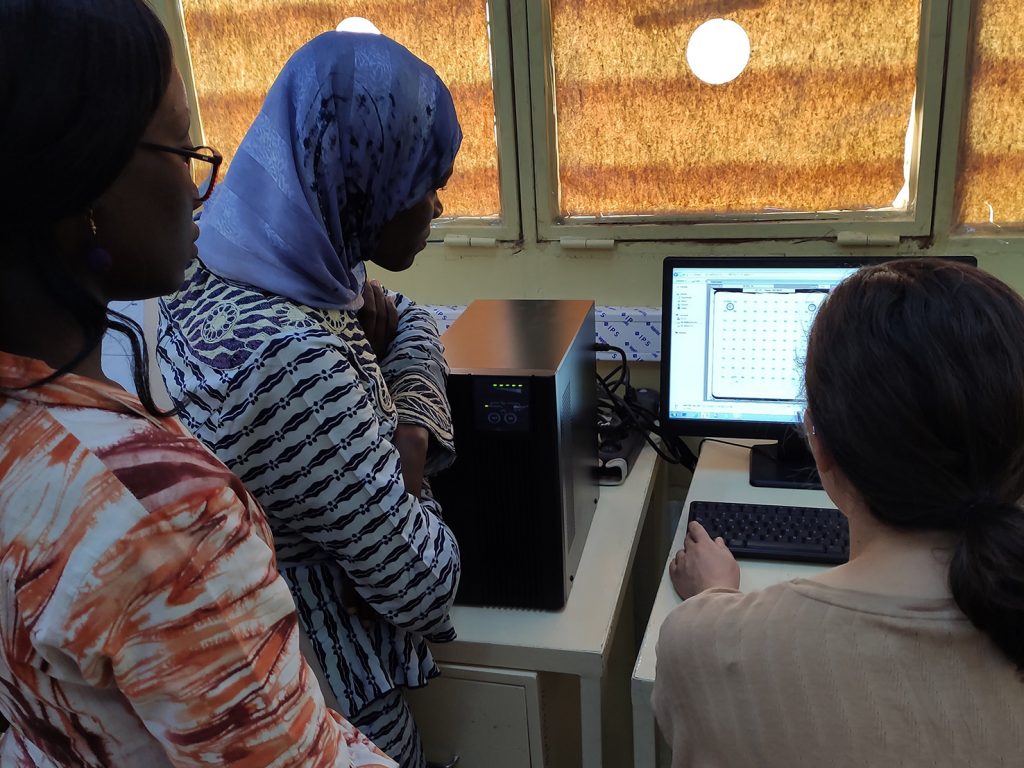
From the 14th of January to the 13th of February 2020 Essia Belarbi and Paul Pitzinger from the german ANDEMIA team visited all study sites in Côte d’Ivoire to re-train laboratory staff in bacteriological and molecular laboratory processes and to implement the enrolment of healthy controls at the different sites.
Health care workers received a refresher training in aseptic blood sampling in order to reduce contamination rates in blood culture, which was supported by a short training video, provided by ANDEMIA and the ITM Antwerp. This video can be accessed freely on the internet here and should be used by the partners to either train new personnel or to remind established health care workers on the proper techniques.
To further improve the quality of bacteriological results biologists and technicians of the bacteriology labs in Bouaké and Guiglo were trained in the use of the API®(Analytical Profile Index) system. Lastly, the implementation of healthy control enrolment was presented to all study sites. As this phase is crucial for the further analysis and interpretation of results, the protocol was discussed in detail to make sure that every site is familiar with procedures and can start enrolment.
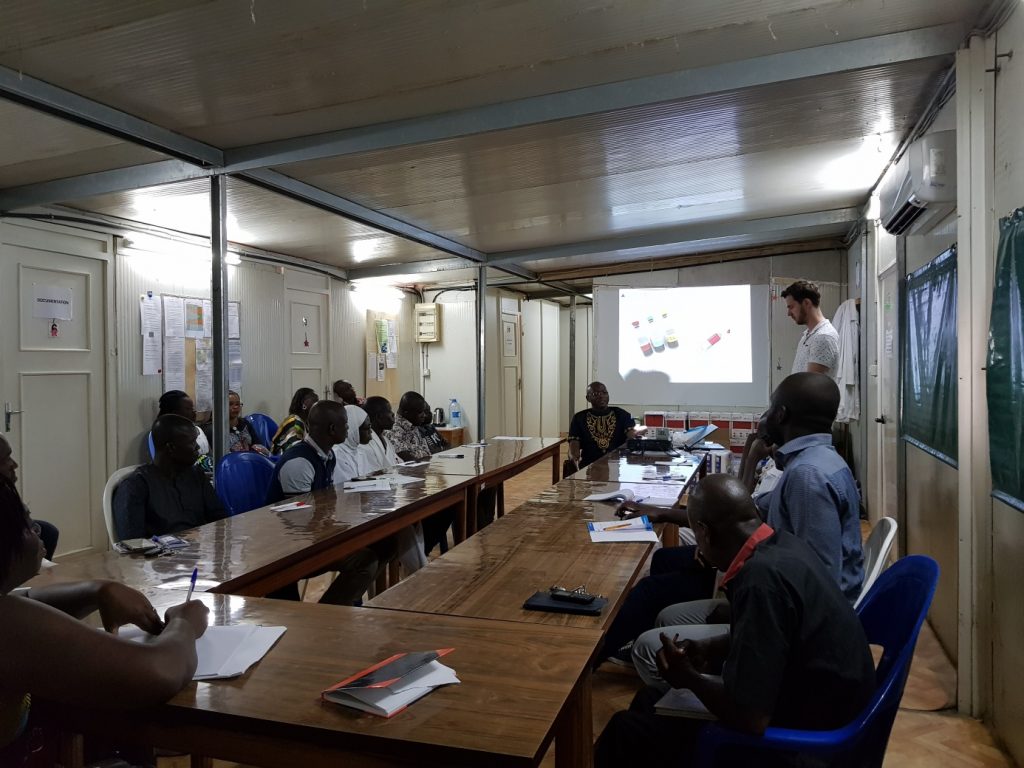
From 28th to 31st of January 2020 members of the ANDEMIA team attended the “Research Network for Health Innovations in Sub Saharan Africa mid-term meeting” in Accra, Ghana. During several workshops and panel discussions African and German scientists from all of the five networks came together to discuss global health questions and to exchange experiences regarding cross-project topics. Project specific issues were discussed in internal network meetings
